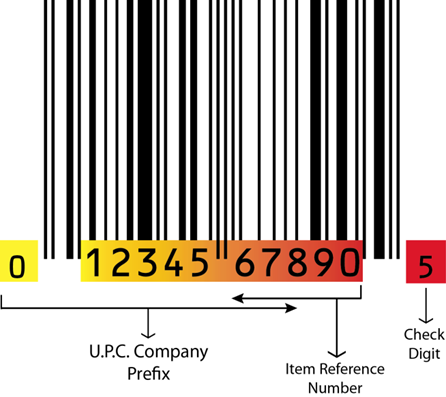Cheap UPC Barcode Resellers
Buyers Beware of Limitations
UPC barcodes plan an enormous role in facilitating your company’s success with retailers and online marketplaces. The global identification standards provide a necessary layer of trust that retail supply chains are reliant upon. It is very common for a new company not to appreciate the importance UPC barcodes contribute to the success of their company. As a result, some are swayed by discounted UPC offers from numerous unaffiliated websites (aka UPC resellers).
These UPC barcode resellers are preying on the lack of understanding by companies and make distorted claims such as, “Our UPC’s originate with the GS1”, “Official UPC codes”, or “Authentic and Unique UPC barcodes”. Before you risk your company’s success, you should understand why correct UPC identification is important so you can correctly identify your items and shipments. If you are selling to only local stores or only on a website, these discounted UPCs may work for you. However, you should be fully informed of the limitations of cheap online UPC barcodes from resellers.
The UPC Company Prefix is a unique identifier that is licensed to a particular company. When a company purchases a UPC from an online UPC reseller they are only receiving a single UPC number whose company prefix is currently assigned to another company. In fact all of the companies who purchased discounted UPC barcodes from this company will have same prefix. Amazon and all of the major retailers mandate their suppliers ALWAYS use UPC with a UPC Company Prefix licensed to that particular suppliers’ company name

Issues Caused by Using UPCs with Shared Company Prefixes
The larger retailers and online marketplaces explicitly mandate that suppliers DO NOT use shared company prefixes and only obtain UPCs with UPC Company Prefixes licensed to suppliers’ brand names. These organizations rely on the structure of unique UPC Company Prefixes to insure accurate product identification and combat counterfeiting. It is very common for retailers to have explicit instructions for business requirements, including UPC barcode identification. Here are some examples:
Amazon UPC Policy - During their early years, Amazon did not adequately convey unified UPC requirements and consequently had problems with trusting the UPCs being provided by suppliers.
Walmart UPC Update - Walmart’s reliance on GS1 standards covers both items identification and carton marking (GTIN-14). In fact, Wal-Mart has posted the following statement on their website due to the problems caused by the confusion: “Please enclose in your proposal packet a copy of your UCC (GS1) membership letter reporting your firm’s actual number. You must be registered directly with the UCC (GS1) and not through a third party.”
Google Merchant Center - Google Shopping requires GTINs for brand name products sold by multiple merchants. Google Product Feeds must now not only have GTINs, but Google is will be testing the accuracy of the data provided by manufacturers.
Is buying a single discounted UPC from a reseller legal?
UPC barcode identification is voluntary and including UPC barcodes on products is not technically a legal requirement. With the exception of FDA-related identification requirements for medical devices and drugs, there is no global requirement. On the contrary, including GS1 UPC barcodes can only make a company’s products more attractive to potential trading partners and also aid in discoverability on search engines and ecommerce sites.
Where do companies go to purchase UPC Codes?
Word of Advice
As the US Barcode Authority, our support representatives are asked daily, “My company is just starting out and we can not afford the $400 fee for 10 UPCs from your GS1 Barcode Service, what should we do?”
Our recommendation is that you contact your potential retail trading partners (if possible) and inquire if a unique company prefix is required or if you may use another company’s prefix. We also suggest you contact us at 888-540-6885 and voice your concern.